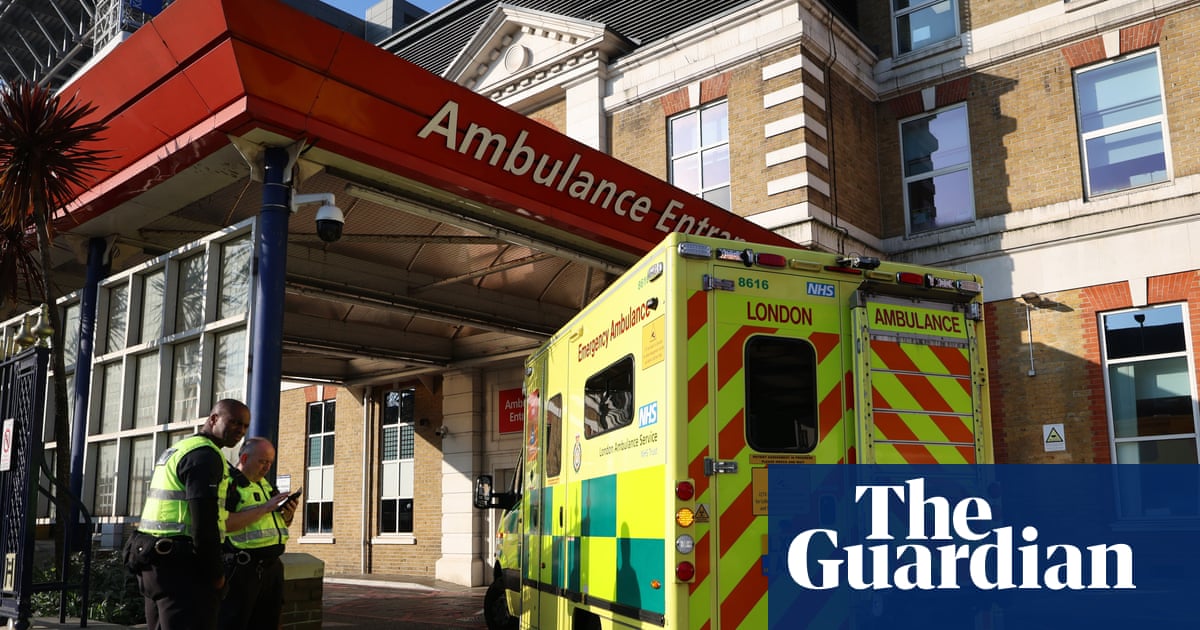Ministers have “maxed out” the amount of money they can give the NHS and it will no longer get big increases in its funding because of tight public finances, the health service’s new boss inEnglandhas said.
Sir Jim Mackey, who took over asNHSEngland’s chief executive last month, said the state of the public finances meant the country could no longer afford big increases in spending.
“We are pretty much maxed out on what’s affordable. It is really now about [the NHS] delivering better value for money, getting more change, delivering on getting back to reasonable productivity levels,” said Mackey, who replacedAmanda Pritchard. “The financial thing is always with us [in the NHS]. There’s never enough money for healthcare. The NHS is such a big part of public spending now.”
His comments came in a speech to health journalists and a question and answer session at an event in London on Thursday organised by the Medical Journalists’ Association.
The remarks by Mackey – an accountant before he joined the NHS – could indicate that the health service will not receive a substantial increase in next month’s comprehensive spending review.
Rachel Reeves, the chancellor, will unveil the review – setting out government spending for the three years between 2026-27 and 2029-30 – on 11 June. In her first budget last October she gave the NHS in England an extra £22bn for 2024-25 and the current financial year.
Mackey’s realism about the NHS’s funding prospects may also foreshadow the amount of money the NHS has to fulfil ambitious plans to overhaul the service that will be outlined in the government’s impending 10-year health plan.
The document, which is being drawn up by a team of advisers to the health secretary, Wes Streeting, is expected to be published in early July, close to the 77th anniversary of the creation of the NHS in 1948 by the postwar Labour government.
Mackey also defended the cuts to the budgets of the NHS’s 215 trusts, whichsenior figures warned on Fridaywere “eye-watering” and would lead to service closures and cuts to staffing. They are the result of a brutal “financial reset” for the service that he ordered in March.
Without such tough action the NHS was likely to overspend by £6.6bn this year, despite its budget being about £200bn, Mackey told the MJA. “[There was] the shock that that was creating [in Whitehall], the worry that was creating, [and] the anxiety about what that meant for the economy, and [with] the international instability that we’ve got, what it meant for broader society.”
Sign up toFirst Edition
Our morning email breaks down the key stories of the day, telling you what’s happening and why it matters
after newsletter promotion
He also warned NHS leaders that while they obsess about the financial restraints within which they work, the plunge in public satisfaction with the service should be their primary concern. Only 21% of people are satisfied with the NHS, thelatest British Social Attitudes surveyrevealed last month.
Mackey added: “The thing we should all really bother about is the British Social Attitudes survey in all of this. It was really terrible last year [when satisfaction was 23%]. We all thought we’d bottomed out, and then it got worse in the latest one. So that was a really big shock; a really big sign that we’re in danger of losing that connection with the public. [That] we’ll lose that properly. We are in really serious trouble.”
Mackey also made clear he disagreed with Streeting’s routine description of the NHS as “broken” due to its inability to be able to continue provide prompt care due to years of neglect under the Conservatives. Mackey countered that while “it’s very, very easy to generalise that this is all broken and failed”, in his view the service “is still delivering genuinely world-class care”, although there was a worryingly wide – and “completely unacceptable” – variation in the quality of care patients received.
